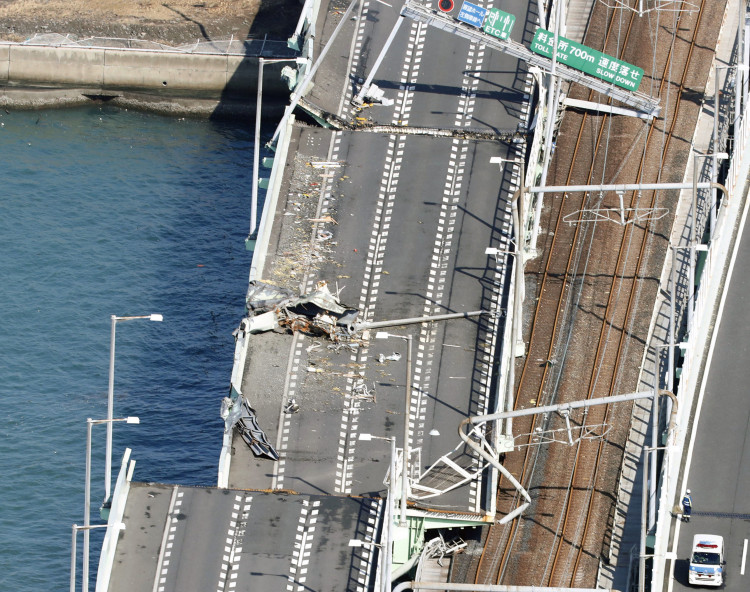Japan suffered the strongest typhoon that has landed in the country within 25 years. Typhoon Jebi made its touchdown in the western area of the country bringing heavy rain and crushing winds of up to 172 km/h. Typhoon Jebi left in its wake massive infrastructure damage which the Japanese government has yet to release an estimated amount.
The typhoon caused tragic damage within some parts of Japan. A tanker was swept in a bridge in Osaka Bay and a railway station roof in Kyoto parts fell down.
More than a million affected people were ordered by the Japanese officials to evacuate their homes in fear of high waves, flooding, and landslides. The typhoon affected Japanese power lines leaving tens of thousands of Japanese without electricity and the Japanese authority strongly encourages everyone to move to the safest location that they could locate.
The typhoon entered the Japanese islands around noon, Japanese Time, on Tuesday entering in the island of Shikoku and it then moves drastically across the country's largest main island of Honshu. The officials predicted that it will weaken as it moves north.
Jebi is the first typhoon to have the "very strong" classification as recorded by the country's weather agency to ever land on its main islands. The last recorded damaging typhoon that had entered the country before Jebi left 48 people dead or missing in 1993.
Reports were aired that hundreds of flights, trains, and ferries were canceled because of Jebi. Reuters reported that runways at Kansai International Airport were flooded in Osaka. The Airport was made in a man-made island in a bay.
Prime Minister Shinzo Abe called or an emergency meeting to address the needs for disaster response and he called on to the Japanese people to take action to protect their lives which include preparing and evacuating early.
There are footages circulating showing large waves crashing the coastline carrying with it debris that could damage properties and threaten life.
Japanese weather agency advised everyone to be careful of possible landslides, flood and violent winds, high tides, lightning, and tornados in affected areas.
The country was reported to be in the regular visit with storms and the weather this summer is in its extreme in the country. Landslides and massive floods killed more than 200 people in July and it was followed by a deadly heatwave. The incident in July was considered as one of the worst in decades.
Typhoon Jebi is entered and slowly crossed across the island of Japan from Tuesday and it is expected to enter Russia at noon on Wednesday.






